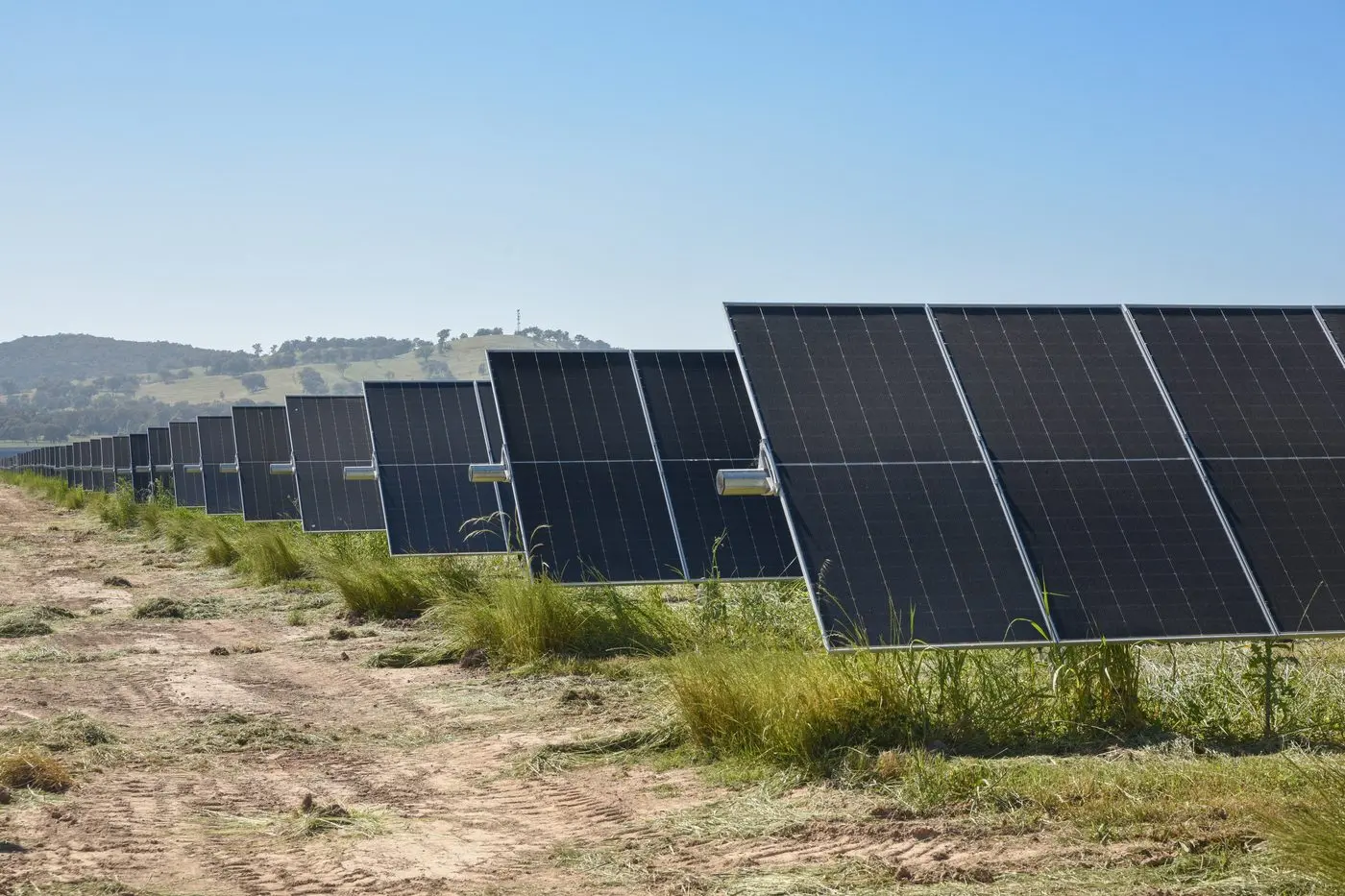PHOTO
By SOPHIE NEWNHAM
VicGrid is setting new requirements for renewable project developers to meet minimum standards of engagement and benefit sharing with regional communities and landholders.
A consultation draft Community Engagement and Social Value Guidelines that set out 48 expectations on engagement and the sharing of benefits with locals was released this week.
Developers will need to demonstrate how they will meet these expectations as a condition of being granted access to the grid in Victoria.
These expectations cover a range of issues communities have raised with VicGrid including impacts on neighbours, non-disclosure agreements, insurance, and decommissioning.
VicGrid chief executive Alistair Parker said there’s a chance now for people to have their say on this draft guide and on the standards they think developers should be held to.
“This is about setting the standards of behaviour we want to see from solar, wind and battery developers in Victoria,” Mr Parker said.
“Developers who want to access the grid will need to show they are doing the right thing by regional communities and meeting government standards for community engagement and benefits.”
Community and industry feedback is welcome on the proposed new rules that will manage how renewable energy projects gain access to the state’s transmission network including:
• Access and Connections Consultation Paper: an overview of the proposed new network access arrangements including proposed transitional arrangements for projects under development.
• Draft Grid Impact Assessment (GIA) Guidelines: details of the assessment that will apply to projects outside renewable energy zones.
These reforms are all part of the Victorian Access Regime and aim to encourage development in renewable energy zones and increase transparency about what projects must do to gain access.
Further information, including how to provide feedback, is available on the Engage Victoria website – engage.vic.gov.au/victorian-access-regime
Wangaratta-based Nationals MP for Ovens Valley, Tim McCurdy, welcomed the new consultation offer.
“It is positive to see VicGrid finally recognising the importance of proper engagement with landholders and regional communities," Mr McCurdy said.
"Setting clear expectations for developers is overdue and much needed.
“However, many locals already feel that their concerns have been dismissed throughout the energy transition process.
"For too long, regional voices have been ignored while decisions are made in Melbourne and imposed on our communities.
“These guidelines must not become another box-ticking exercise.
"If the government is serious about rebuilding trust, it needs to ensure these standards are enforced and that farmers and regional families see real, tangible outcomes from hosting renewable projects.”
Independent Indi MP Helen Haines said the draft guidelines were an important step in the right direction.
“Too often we’ve seen bullish behaviour from renewable energy developers go without consequences – finally that is set to change,” Dr Haines said.
“Regional communities are vital stakeholders contributing to the energy transition, and must be treated as such.”
The draft guidelines will require developers to engage with landholders and neighbours early in the planning process, respond to community concerns about fire and flooding risks, deliver economic benefits to communities, and end the use of non-disclosure agreements with landholders.
Dr Haines welcomed VicGrid’s confirmation that projects from developers who fail to meet these standards will not be approved.
“This is about making sure local knowledge is listened to and valued, and regional communities receive long-term economic benefits from the energy transition,” Dr Haines said.
“We’re not talking about one-off grants to the local footy netball club.
"We’re talking about cheaper power and investment in local infrastructure that enhances the vibrancy of regional communities, making them attractive places to live and run a business.
“Whether it’s investment in local childcare centres, to public amenities like pools and emergency services precincts, to telecommunications towers, it should all be on the cards.”
Dr Haines said the federal government’s newly announced 2035 emissions reduction target would only be met if the renewable rollout was done in partnership with regional Australia.
“Regional communities want to be part of the solution, but the rollout must be done fairly," she said.
"These new guidelines are a step towards making that happen.”

